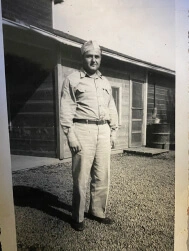TDIU Lawyer
If you’re a veteran struggling to maintain employment due to your service-connected disabilities, you may be eligible for Total Disability Individual Unemployability (TDIU) benefits.
TDIU is a powerful tool that allows qualifying veterans to receive disability compensation at the same level as a 100% disability rating, even if their actual rating is lower. But, the VA claims process can be complicated, especially when you’re already dealing with the challenges of a disability.
That’s where having a veterans disability lawyer in your corner can make all the difference. At ProVet Legal, we know the system inside and out and can help you avoid the common pitfalls that trip up so many vets.
We’ve been through this process more times than we can count. Why go it alone when you can have a dedicated team in your corner? Give us a call today for a free consultation.
What are TDIU Benefits?
TDIU is a type of VA disability compensation designed to support veterans who are unable to maintain substantially gainful employment due to their service-connected disabilities.
While regular VA disability compensation is based on the severity of your disabilities, TDIU focuses on how those disabilities impact your ability to work.
For many veterans, TDIU is a lifeline that provides financial stability when their disabilities make it impossible to hold down a steady job. By recognizing the impact that service-connected disabilities can have on a veteran’s employability, TDIU ensures that our nation’s heroes receive the support they need to live with dignity.

Eligibility Requirements for TDIU
To qualify for TDIU benefits, you must meet two key eligibility requirements:
1) Service-Connected Disability Ratings
You usually must have either:
- At least one service-connected disability rated at 60% or more or
- Two or more service-connected disabilities, with at least one rated at 40% and a combined rating of 70% or more
These rating thresholds demonstrate the impact your disabilities have on your overall health and well-being. 2) Inability to Maintain Substantially Gainful Employment
In addition to meeting the disability rating requirements, you must also be unable to maintain “substantially gainful employment” due to your service-connected disabilities. Substantially gainful employment is defined as work that provides earned annual income exceeding the poverty threshold for one person.
When assessing your employability, the VA considers factors like your work history, educational background, and the nature and severity of your disabilities. It’s important to note that marginal employment, like odd jobs,part-time work, or employment in a sheltered work environment, does not count as substantially gainful employment.
Exceptional Cases
In certain exceptional cases, veterans with lower disability ratings may still qualify for TDIU. For example, if your disabilities require frequent hospitalization or if you have a demonstrated need for a protected work environment, you may be eligible for TDIU even if you don’t meet the standard rating thresholds.
Why Work With a TDIU Lawyer?
You might be wondering, “If these are government benefits, why do I need a lawyer to claim them?” It’s a fair question, and the answer boils down to this: while the VA offers these benefits, the process of obtaining them is rarely straightforward.
Our veterans disability attorneys act as your guide and advocate, helping you build the strongest possible case for benefits.
We have an in-depth understanding of VA regulations and case law, which allows us to develop effective strategies tailored to your situation. We’ll work with you to gather evidence, draft compelling legal arguments, and represent you in appeals and hearings if necessary.
By having a dedicated TDIU lawyer on your side, you can focus on your health and well-being while we handle the legal heavy lifting.
The TDIU Claims Process
The TDIU claims process involves several key steps:
Filing a Claim
To apply for TDIU benefits, you’ll need to submit two crucial forms:
- VA Form 21-8940 (Veteran’s Application for Increased Compensation Based on Unemployability)
- VA Form 21-4192 (Request for Employment Information in Connection with Claim for Disability Benefits)
Along with these forms, you’ll need to provide evidence supporting your claim, such as medical records, vocational expert opinions, and lay statements from family, friends, or coworkers. To get the earliest possible effective date for your TDIU claim, it is sometimes helpful to enclose these forms with a Supplemental Claim (VA form 20-0995) if the claims are still open for the underlying conditions that are impacting your ability to work, or if those claims were decided within the past year.
VA’s Review Process
Once you’ve submitted your claim, the VA will begin its review process. This involves assessing your service-connected disabilities, reviewing your work and education history, and considering any medical evidence and expert opinions you’ve provided.
The VA may also schedule you for a compensation and pension (C&P) exam to evaluate the severity of your disabilities and their impact on your employability.
Appeals and Hearings
If your TDIU claim is denied, don’t lose hope. You have the right to appeal the decision and present additional evidence to support your case. A skilled TDIU lawyer can guide you through the appeals process, representing you at hearings and crafting persuasive legal arguments on your behalf.
Evidence Required for a TDIU Claim
To build a strong TDIU claim, you’ll need to provide compelling evidence that demonstrates how your service-connected disabilities prevent you from maintaining substantially gainful employment.
Some key types of evidence include:
- Medical records and doctor’s reports that detail the severity of your disabilities and their impact on your ability to work
- Vocational expert opinions that assess your employability in light of your disabilities, work history, and education
- Lay statements from family, friends, or coworkers who have witnessed firsthand how your disabilities affect your daily life and ability to work
- Employment records, job applications, and other documents that show your efforts to find and maintain employment
- Education and training history that highlights any limitations your disabilities place on your ability to learn new skills or adapt to different work environments
The more comprehensive and compelling your evidence, the stronger your TDIU claim will be.
Your Allies in the TDIU Battle: How ProVet Legal Fights for You
At ProVet Legal, our mission is to help veterans like you secure the TDIU benefits you deserve. We understand the challenges that come with service-connected disabilities, and we’re committed to providing personalized attention and guidance every step of the way.
Our TDIU lawyers bring in-depth knowledge of VA regulations and case law to the table, along with a proven track record of success in TDIU claims and appeals.
When you choose ProVet Legal, you can rest assured that you have a dedicated advocate in your corner. If you’re struggling with service-connected disabilities that prevent you from maintaining substantially gainful employment, don’t wait another day to seek the help you need.
We’re more than just lawyers – we’re your partners in the fight for the benefits you deserve. Let us put our experience and passion to work for you. Call us today to schedule your free consultation and take the first step toward securing your TDIU benefits.




